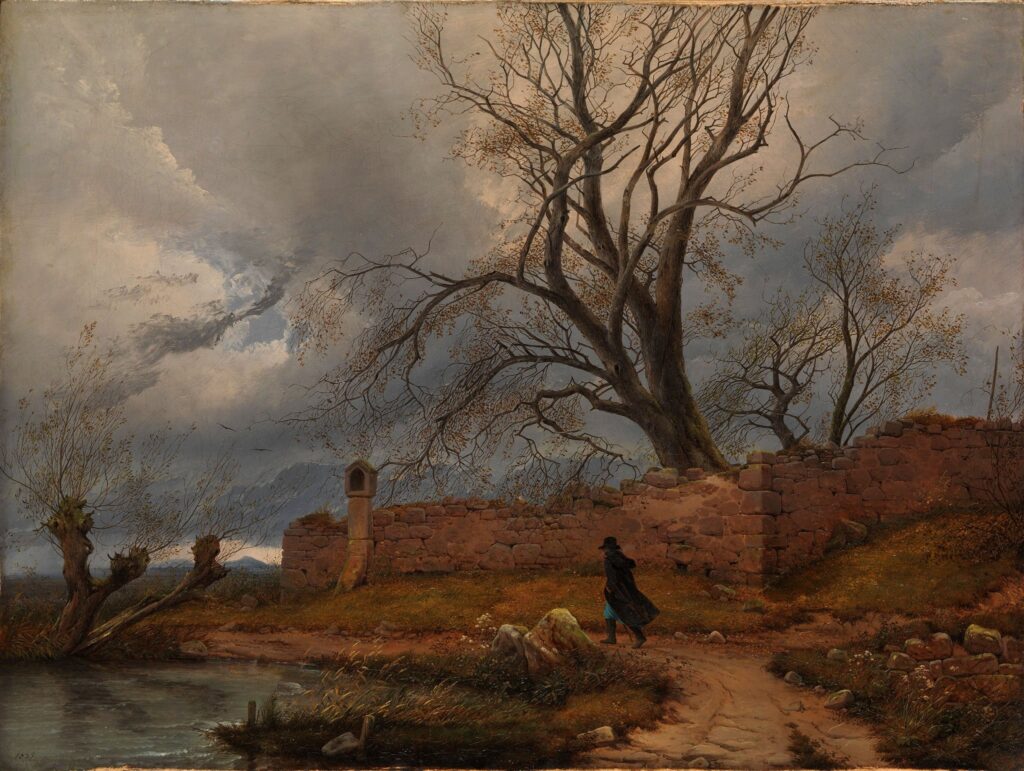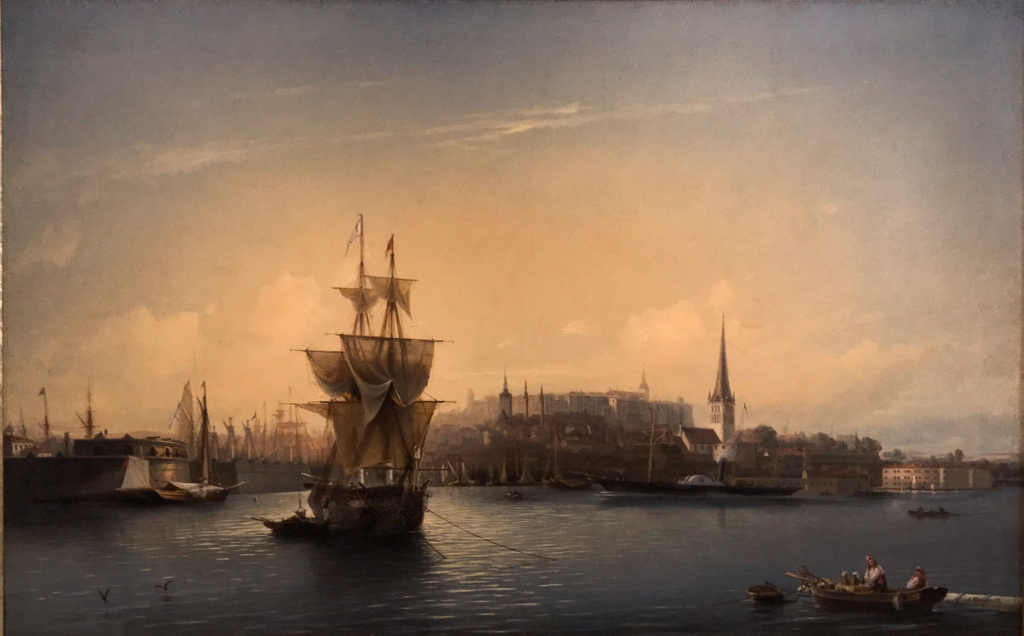
In any effort to fundamentally change society it is necessary to mobilise the young. The rhetoric on the populist right often invokes notions of the people rising up, yet it rarely dwells too deeply on exactly the profile of such a person who is meant to suddenly spring into rebellion. It could be compelling argued that we are all living in the world created and dominated by the baby boomers. Those born from approximately the mid-1940s to the 1960s continue to maintain a stranglehold on the political landscape of the US, as decrepit Biden (born 1942) battles an aged Trump (born 1946). All mainstream political parties are beholden to the interests of the baby boomers, who vote reliably and control the lion’s share of wealth in Western society. Much ink has been spilled on dissecting and criticising the mindset of the baby boomers, yet serious reflection on the mentality of those under 40 seems largely absent. This is of course a huge oversight for a movement ostensibly seeking massive political changes, as it is exactly this group that has the most to benefit from a total demolition of the existing order.
Some may raise objections to approaching political analysis from the point of view of generations. Drawing neat boundaries between different age cohorts is to an extent arbitrary, and the degree to which across all nations, social classes, and even ethnicities there could be a common experience is up for debate. Yet in an age of hyper-globalisation and the mass adoption of the internet the millennial generation more than any before it has been subjected to a homogenisation of thought and experience. It is telling for example that the BLM movement spread far beyond the confines of the United States. When gauging support for BLM age was a more accurate bellwether than nationality. Social fads no longer seem to respect national boundaries, but they can be observed as generational phenomena. It could even be argued that Trump versus Biden is to a degree a clash of generations, as technically Biden is part of the Silent Generation, whereas Trump is a Baby Boomer. This may explain why Biden’s rhetoric is so incredibly out of step with public opinion, as his touchstones and reference points attempt to appeal to a society that ceased to exist even before the end of Second World War.
All generations are forged by novel experiences, including the technological developments of the day. Undoubtedly, the lives of previous generations were shaped by cotton mills, the steam train, and the machine gun just as our own experience has been shaped by the internet. The rapid increase in the rate of technological development in the 20th century could be a primary determinant in explaining the particularly sharp divides between those born only decades apart. The world of 1914 must have seemed entirely alien to someone born only a few decades prior. It could be said that anyone born from 1900 to 1999 is a child of tumult, a product of immense social, demographic, and technological upheaval and dislocation. The human experience of an individual born in 1066 and one born in 1166 is likely to have been at the very least comparable. Yet it seems in the 20th century decades contained leaps in technology and social attitudes that had taken centuries prior.
Millennials (those born approximately 1980 to 2000) occupy a unique space, a pivot generation who witnessed the tail end of the extraordinary technological and political changes of the 20th century. They are a generation defined by absence: the first generation without religion, living in the aftermath of the fall of the Berlin Wall in which every ideological opponent to liberalism had been defeated and discredited, a total carte blanche generation which identifies more with the media they consume than their own nation. It would be easy to criticise millennials as the petulant man children of history, those who were born at the apogee of liberal freedom and who are now propagating a puritanical woke anti-civilization. Yet to do so would not be to tell the entire story, for to be a millennial is not only to be defined by absence, but to be defined by loss.
Those born in 1980s and 1990s were probably the last to see a homogenous ethnic majority in their own nations, and along with it the vanishing prospects of societal cohesion. They have witnessed the white heat of technology burn to embers. Whether or not technological progress is slowing is difficult to judge, but certainly the perception is that the huge leaps forward that were pioneered in the last century have slowed. Economically their prospects are bleak, they are living a life of arrested development as house prices and the basic cost of living has outpaced the ability to pay for it, and generational wealth has not been handed down but either hoarded or squandered by their parents.
The penchant of millennials to smother themselves in nostalgia for their childhood from Harry Potter to Nintendo is understandable if one accepts the premise that by nearly all metrics, they have watched the world decline as they matured. The millennial experience has been one in which they have lacked any agency or political voice; there was no major student movement comparable to May 1968 orchestrated by millennials, even though millennial grievances in terms of wealth inequality and the general decay of the world seem to be far more compelling. Passivity is a hallmark of millennialdom, with the primary pastimes being consuming media from video games to Netflix originals. Yet this passivity is again a product of bitter disappointment, cyberspace was trumpeted as the next evolution of global society, an escape from the ills of the past in which unmediated communication would allow our collective imaginations to build unparalleled worlds – and for a time, it did.
But the same corporate interests, political busybodies, and paucity of ideas and imagination that has ruined conventional society soon poisoned the internet, and now millennials are consuming YouTube shorts and TikToks in the same way aging alcoholics lean on cheap booze as their crutch. As millennials enter their 30s and 40s, a great wellspring of bitterness is developing as it becomes clear the generation that was promised everything has nothing and the prospect of them getting anything remains remote. Millennials have been robbed of the demographic and political stability they took for granted as children, and been left with economic, environmental, and social ruin by the generations before them who pursued their short-term gain at the expense of posterity.
It is a bugbear of the mainstream Right that millennials overwhelmingly support socialist policies and politically left parties. But this is unsurprising when one considers the economic situation they find themselves in; they have been shafted by mainstream political parties across the West relentlessly. They have lived their entire lives without the Conservatives or the Republicans ever enacting one policy that might benefit them personally, and these parties still refuse to address any of the concerns facing anyone under 40 today. Their loss is our opportunity. As an increasingly disaffected generation seeks answers and righteous political redress, we must be in position to offer solutions. There will be no more talk of “pulling yourself up by the bootstraps.” For good and for ill the baby boomers have been a roadblock to radical change, intransigent on economic and social policies that would alter society, seeing no reason to do so while they had their money and their freedom. Yet their time is ending, the dam is breaking and the flood of frustration and polarisation that will follow will present opportunities as well as potential disasters.
All millennials are liberals separated only by degrees of liberalism. They have been raised in a world with no alternative. They have fallen prey to fads such as transgenderism and critical race theory because they have no strong identity, no overall unifying characteristics beyond the shared media they have consumed. They are fundamentally unserious, Marvel-brained and addled by being the first generation to be subjected to an overwhelming barrage of pornography of all kinds. They have been deskilled by the importation of third world labour and the outsourcing of jobs, while being offered subsistence welfare to keep them placid. They are totally deracinated and ignorant of history. They have had no need for collective consciousness. Yet this can all change. Generations are malleable, and shared experiences can be used as reference points to guide the psychological and political development of age cohorts.
In purely pragmatic terms there is no utility in simply complaining about the nature of millennials, they have been shaped by an unprecedented alignment of negative circumstances. Yet we must never lose sight of the fact that it is only with their support that we can truly change the world for the better, and movements that ignore this fact are doomed to fail. The MAGA movement is an expression of baby boomer values clashing with a world that has changed. MAGA wants to appeal to constitutionalism and the good old values of free speech and fair play that have always allowed the Republican party to muddle through to its electoral college dependent victories. Our platform and pitch to the youth must be radical and holistic.
We must state clearly that we will destroy usury and unseat the usurers that have robbed this generation of its wealth. We will not reform but totally destroy the political system that has enabled the dismal circumstances that we now find ourselves in. We will provide homes for those who have only ever known rent serfdom; we will provide jobs that pay wages worth having in a society that is not flooded by economically competing interlopers. Above all, we will provide a metaphysical beacon for a generation that has spent its entire adult life lost at sea. We will re-root millennials in the great tree of life that is our race, and in doing so finally give them the purpose they have so desperately lacked. We must never lose sight of the future, nor unfairly chastise the wayward youth of our race, but instead we must shepherd them back onto the upward path, and in so doing secure our continued existence.






Recent Comments